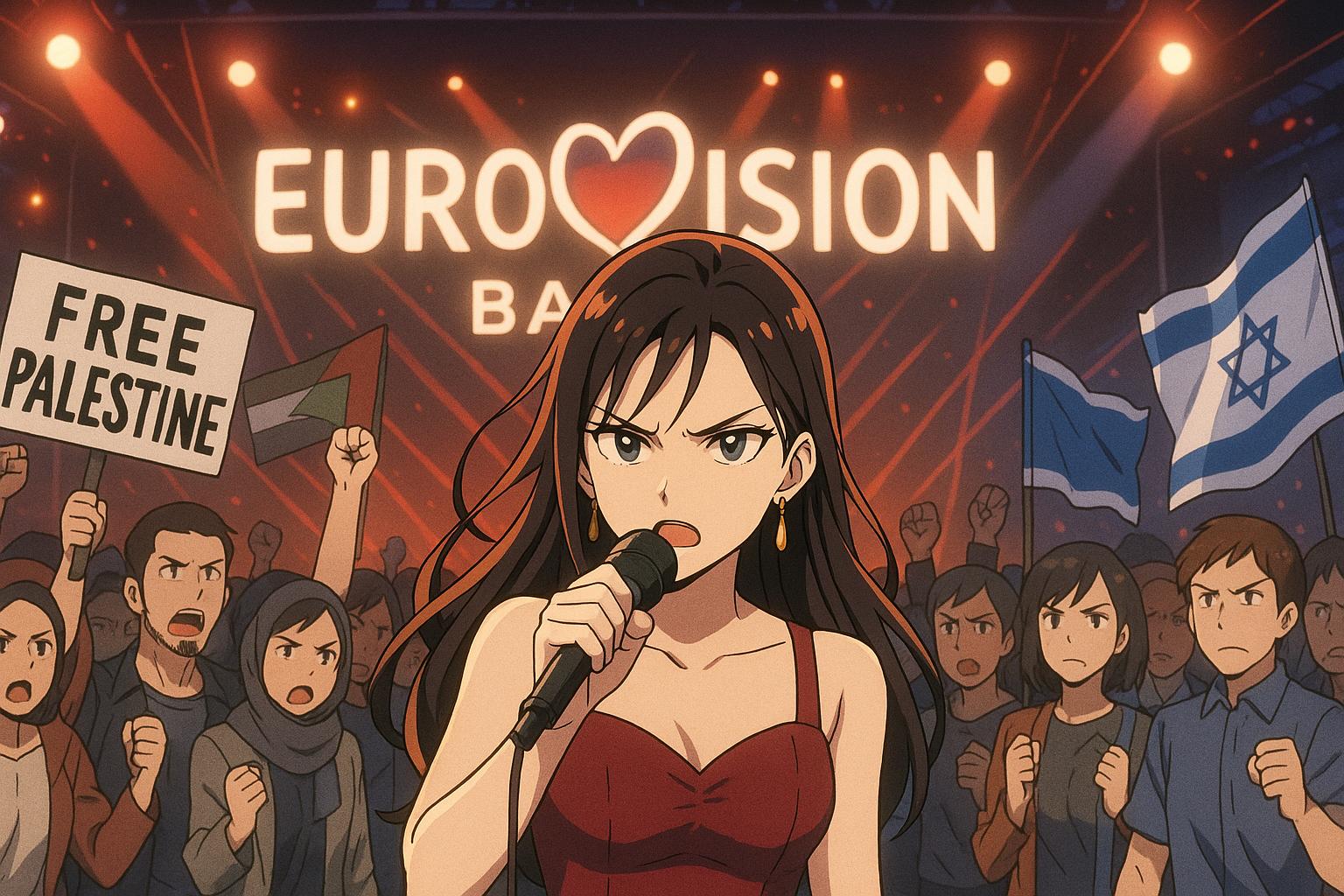The Eurovision Song Contest, once heralded as a celebration of cultural vibrancy, has tragically devolved into a stage for political discord in its 2025 edition held in Basel, Switzerland. The recent uproar surrounding British protesters David Curry and Meaghan Leon, who were arrested for attempting to storm the stage shouting “Free Palestine” during Israel's performance, starkly illustrates the underlying tensions surrounding this event. As the singer Yuval Raphael belted out her song "New Day Will Rise," the protest only deepened the rift between the contest and the pressing geopolitical crises of our time.
The protest, orchestrated by the UK-based activist group Youth Demand, called for an end to arms sales to Israel while intertwining social issues with cultural events. These actions resonate with a growing discontent among the public, as thousands gathered in Barfüesserplatz to decry what they labeled "Israeli apartheid." Against a backdrop of the devastating Gaza conflict, where health officials report over 50,000 casualties, such protests merely reveal how detached the Eurovision has become from the sentiments of the public.
Compounding this tension was Raphael’s background as a survivor of the October 7 Hamas attacks, making her participation a loaded political statement in itself. Although her performance garnered impressive public support, coming in second in the competition, it underscores how artistic merit is often overshadowed by the political ramifications of participation in such events.
The European Broadcasting Union (EBU) has attempted to suppress dissenting voices, even warning broadcasters like Spain's RTVE against addressing the Gaza conflict during the contest. RTVE, however, defied those restrictions by advocating for Palestinian rights during the final, igniting a fierce debate over whether the voting system truly reflects musical talent or is merely a reflection of political sympathies.
The results of the public vote further illuminate this disconnect. Spain's enthusiastic support for Israel's entry, awarding it the coveted 12 points, stands in stark contrast to the larger political queries about the contest’s integrity. This disconnect has been perceived by Israeli officials as a rebuke of Spain’s position on the ongoing conflict, thereby raising eyebrows about how institutional policies align (or fail to align) with public sentiment.
The overall outcome of the contest, including Austria’s victory with performer JJ, whose operatic flair captivated audiences, does little to bridge the chasm between geopolitics and cultural representation. Pro-Palestinian advocates argue vigorously that the contest serves only to "whitewash" human rights violations, exposing the fragility of the relationship between art and activism.
In an event designed to cultivate unity through music, the stark divergence of political allegiances and public support highlights the growing challenges that international gatherings face. With growing dissatisfaction around Eurovision’s mishandling of geopolitical narratives, calls for reform in participation policies are likely to gain traction. The necessity for a more discerning approach to cultural dialogue in a world increasingly riddled with conflict is vital now more than ever.
Source: Noah Wire Services
